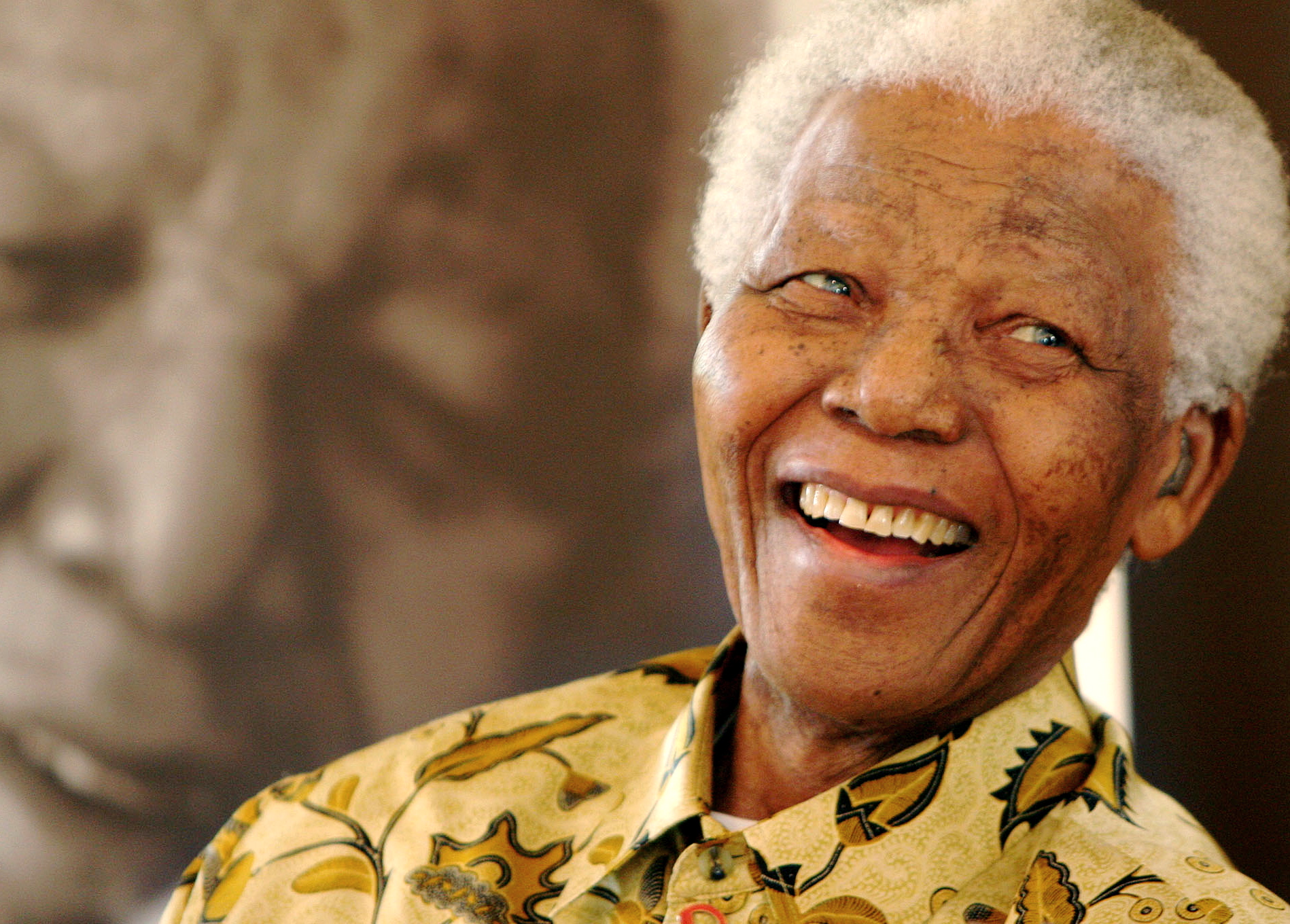Nelson Mandela has died, at the age 95. Although he left office in 1999, after serving five years as South Africa’s first democratically elected president, he remained the conscience of the country and a man beloved throughout the world. He was a unifying symbol of the “rainbow” nation.
How will South Africa fare now that he’s gone? Will it remain, two decades after the dismantling of white-minority rule and legally-entrenched apartheid, and as the most industrialized state on the continent, a beacon of hope, or might it slide into ethnic conflict and dictatorship — the fate of so many other states in Africa?
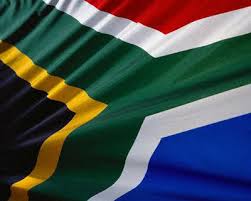
The transition from white-only to majority rule was carefully managed and thus the country did not fall into chaos. The interim constitution, in place from 1994 to 1997, introduced an entrenched bill of rights, and created a Constitutional Court with broad powers of judicial review.
In any new country — and post-apartheid South Africa was effectively just that — individual leaders have played important roles. They set the “rules of the game” and provide the state with a new political culture. In general, they can either enhance democracy and state legitimacy or undermine it through corruption and excessive preoccupation with power, which often leads to dictatorial rule.
Fortunately for South Africa, Mandela’s absolute commitment to democracy kept post-apartheid South Africa on a democratic path. Although the African National Congress (ANC), the organization Mandela headed for decades, has won every election since 1994 by overwhelming majorities, elections have been free and fair and opposition parties have had full opportunity to contest them.
A disproportionate number of white South Africans who opposed apartheid and aided the ANC were Jews, and Mandela always made sure the world knew it. In his 1994 autobiography, Long Walk to Freedom, Mandela said “I have found Jews to be more broad-minded than most whites on issues of race and politics, perhaps because they themselves have historically been victims of prejudice.”
But he also sometimes viewed Israel as a colonial power, and Jewish groups criticized Mandela for praising the Palestine Liberation Organization just a month after he was freed in February 1990. The PLO had built a close relationship with the ANC and for some years had helped train members of its military wing. One of Mandela’s first acts as a free man was to visit Yasser Arafat, the chairman of the PLO.
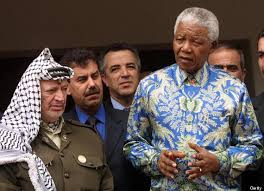
After all, following the 1973 Yom Kippur War, an increasingly isolated Israel developed close ties with the apartheid regime in Pretoria. By the mid 1970s, an economic and military alliance between Israel and South Africa was on the ascendancy. In April 1976, South African Prime Minister John Vorster paid a state visit, meeting Israeli Prime Minister Yitzhak Rabin.
The two countries even cooperated in the development of nuclear technology. By the late 1980s, Israel was virtually alone among countries that still maintained strong, even strategic, relations with apartheid South Africa. Obviously, it would have been asking too much of even Nelson Mandela to ignore all this.
Libya had also provided funding and support, as well as military training, to the ANC. Mandela, in turn, said he considered Moammar Gadhafi a friend and made two official visits to the country as president of South Africa, in 1994 and 1997. Mandela chided those who expressed opposition to these ties by declaring that they made the mistake of assuming that “their enemies should be our enemies.”
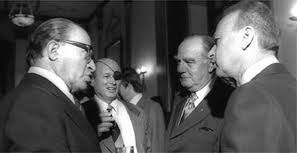
However, in October 1999, after he had stepped down as president, Mandela came to Israel, visited Yad Vashem, and met with newly elected prime minister Ehud Barak. But he reiterated his unwavering opposition to Israeli control of the Gaza Strip, the West Bank, the Golan Heights and southern Lebanon.
Mandela’s successor was Thabo Mbeki, like Mandela a member of the Xhosa national group. During Mbeki’s time in office between 1999 and 2008, he created employment in the middle sectors of the economy and oversaw a fast-growing black middle class. He expanded trade with other rising powers such as Brazil, Russia, India, and China, the so-called BRIC nations.
However, Mbeki was criticized for his failure to denounce Robert Mugabe’s dictatorial rule in neighboring Zimbabwe, and, according to some observers, he grew remote, paranoid and autocratic while in power. His ongoing clashes with his own deputy president, Jacob Zuma, who had been accused of corruption, fraud and rape, led the ANC’s executive in 2007 to remove Mbeki as party leader. Instead, Zuma was nominated by the party as its presidential candidate in 2009 and won the presidency.
The country’s first Zulu president, Zuma has battled controversies throughout his career. He has been reproached for introducing Zulu nationalism into a party that prides itself on rising above tribalism. Then there were the allegations of money-laundering and racketeering, stemming from a controversial $5 billion 1999 arms deal.
Zuma was charged with enriching himself in the procurement of arms for the country by accepting bribes while he was deputy president under Mbeki. However, the charges were thrown out just weeks before the election which saw him become president.
Zuma has also faced repeated investigations over $27 million in government money spent on security upgrades to his private residence in his home village of Nkandla, in KwaZulu-Natal province. Not surprisingly, he has failed to tackle increasing corruption among members of the ANC at all levels, from government members to local councilors.
While some people were getting rich, life remains very hard for the majority of black South Africans. The unemployment rate averages 25 percent but twice that among young black workers. Whites, just 10 percent of the population of 48 million people, earn on average six times as much as blacks. About 40 percent of the population survives on less than $2 a day, nearly a quarter are without electricity, and nearly a fifth are without proper sanitation facilities.
South Africa has one of the greatest divides between haves and have-nots anywhere in the world. But black-empowerment schemes to redress apartheid’s injustices have been widely abused to enrich ANC-linked people, including Zuma’s relatives.
Meanwhile, the economy is floundering.
In August 2012, miners went on strike at the Marikana platinum mine in the nation’s northwest. The strike turned violent, and police opened fire on demonstrators, killing 34 workers. An additional 10 people died in the protests, including two police officers. Working and living conditions were terrible, as was the pay.
Deadly violence, illegal strikes and union infighting have continued to plague South Africa’s platinum belt since last year’s deadly strikes. This past June, a union official was killed and another injured in shootings at the Marikana mine.
Thousands of truckers have also staged strikes, threatening supplies of fuel and food. But since 1994 the ANC has overwhelmingly won every election and controls two-thirds of the seats in parliament. The opposition Democratic Alliance is still largely perceived as “too white.”
Meanwhile, in recent years South Africa’s relationship with Israel has been decidedly cool, as Pretoria sees itself as sharing an affinity with the Palestinians and other Third World peoples. Just last month, South Africa’s Foreign Minister Maite Nkoana-Mashabane said that South African ministers are not visiting Israel out of solidarity with the Palestinians.
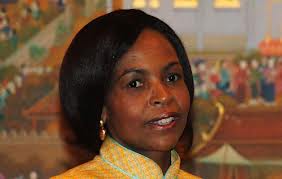
“The struggle of the people of Palestine is our struggle,” she told an audience of trade unionists. “The last time I saw a map of Palestine, I couldn’t sleep,” Nkoana-Mashabane added, explaining that the map “is just dots, smaller than those of the homelands, and that broke my heart.” The “homelands,” also called Bantustans, were territories set aside for blacks in apartheid-era South Africa.
Iran’s nuclear quest, however, did not bother her when she met with Iran’s visiting Foreign Minister Mohammad Javad Zarif and praised Iran for its “respect” for human rights.
None of this bodes well as the country faces a future without the stabilizing inspiration of Nelson Mandela.

Henry Srebrnik is a professor of political science at the University of Prince Edward Island.
